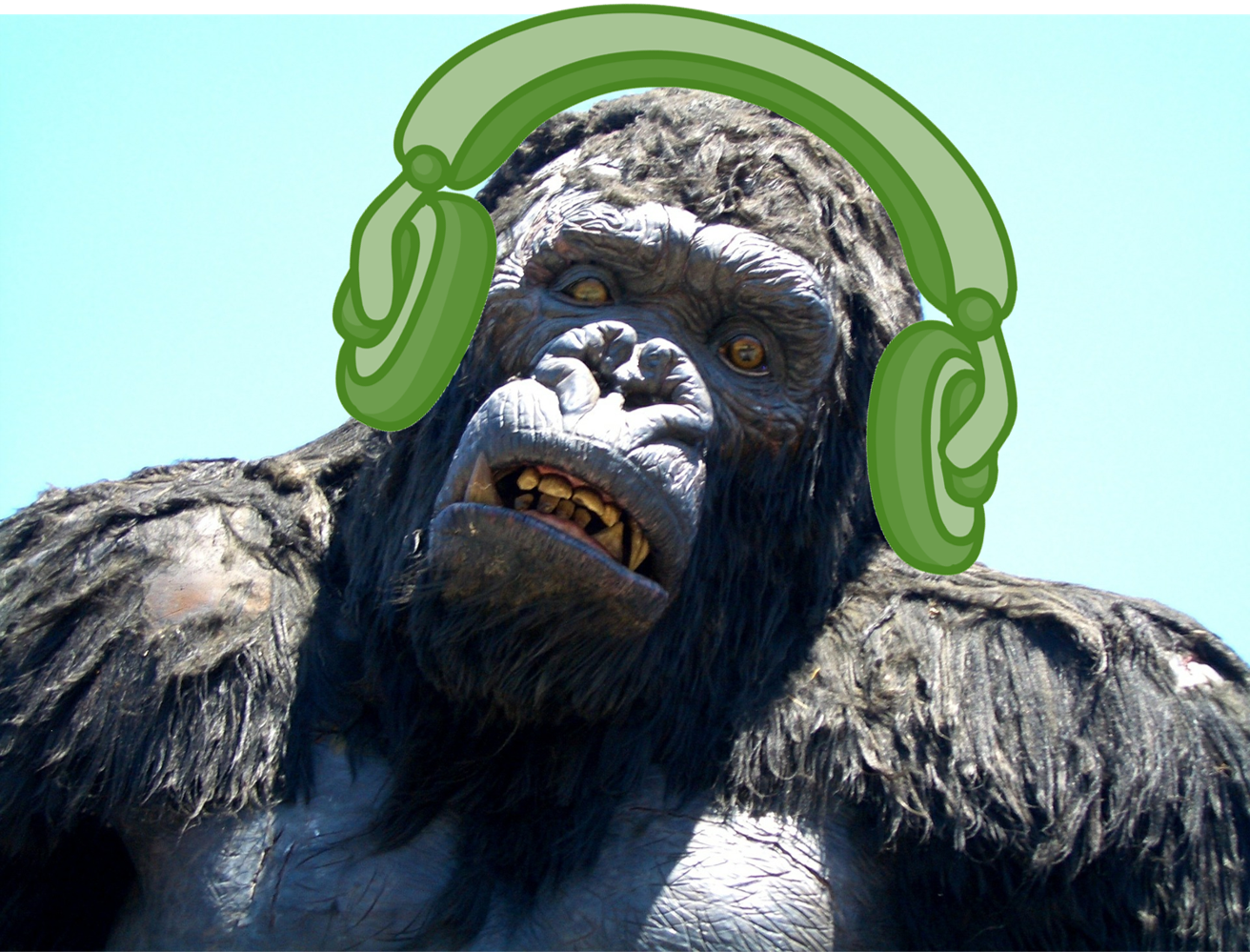
The audio revolution is upon us, and all the big players are scrambling for real estate. SiriusXM has been very active this past year, expanding its channel offerings, launching its new 360L in-car interface, and marketing its app aggressively to stimulate usage outside the car. As we’ve covered here, the New York Times has been especially aggressive, acquiring more podcasts and launching its all-audio app.
More familiar to radio broadcasters, iHeart and Audacy have been very busy in 2021, bolstering their holdings, cutting partnerships, and launching podcasts in an effort to expand their audio empires.
Yesterday, it was a new collab between Audacy and the Hard Rock Cafe franchise. Earlier in the week, it was iHeart shacking up with Ron Howard and Brian Grazer to create an audio arm for Imagine Entertainment. Partnerships are becoming a huge part of most companies’ audio engine growth strategies.
But then there’s Spotify. Last spring, I wrote about their 15th anniversary, looking at the many tentacles they’ve added to their audio content offerings. For the most part, the company has enjoyed success.
Earlier in the month, Cumulus and Signal Hill Insights presented a new research study revealing that Spotify is now the #1 destination for podcast fans, passing both Apple and YouTube. Their data matches other research conducted this past year.
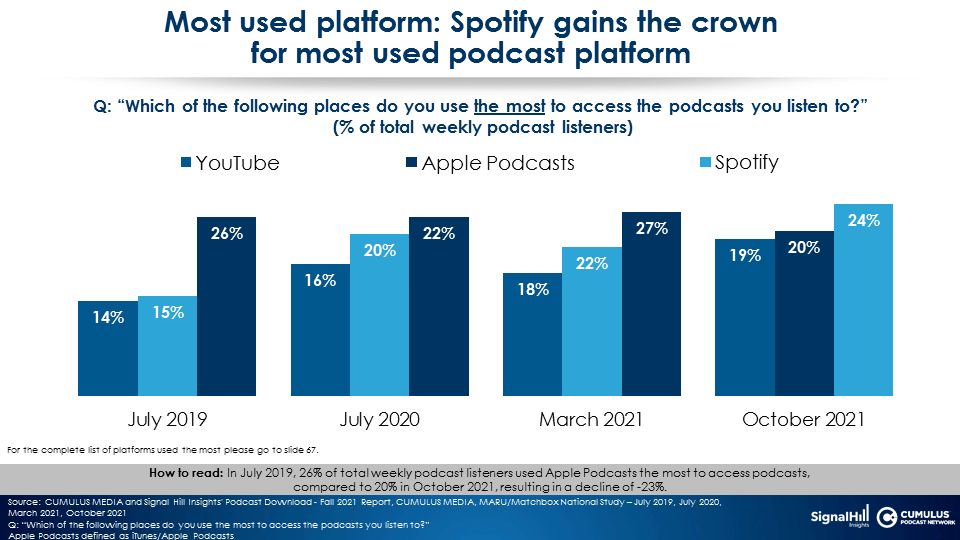
Not only does Spotify have premier podcasts like “The Joe Rogan Experience,” but they’re the first stop for many podcast devotees.
And earlier this month, Spotify released this year’s “Wrapped” project – that’s where they release their subscribers’ personal metrics via their listening habits.
Packaged and distributed to fans since 2015, it includes their most listened to songs and artists, along with lots of cool data points to entertain and amaze their massive user base.

Many Spotify subscribers now look forward to their “Wrapped” data, the event that now follows “Black Friday” and “Cyber Monday.”
Last month, we talked about the appeal of countdowns, like Casey Kasem’s “AT40.” “Wrapped” works in much the same way for personal playlists and music tastes. And many of Spotify’s users are amazed and delighted with their results, posting highlights on their social media pages.
But this year, “Wrapped” was accompanied by pithy little quips and observations about their users’ musical preferences. The New York Times reports these comments – very much like one-liners – are designed to bring a little personality to their annual metrics fest.
Whether they are accomplishing Spotify’s goals to warm up their cool data is in the ear of the beholder. But lines loaded with buzzwords and slang, like “You always understood the assignment” or “You deserve a playlist as long as your skincare routine” remind me of a fledgling DJ working in rim shots and not-so-clever accompaniments to the music.
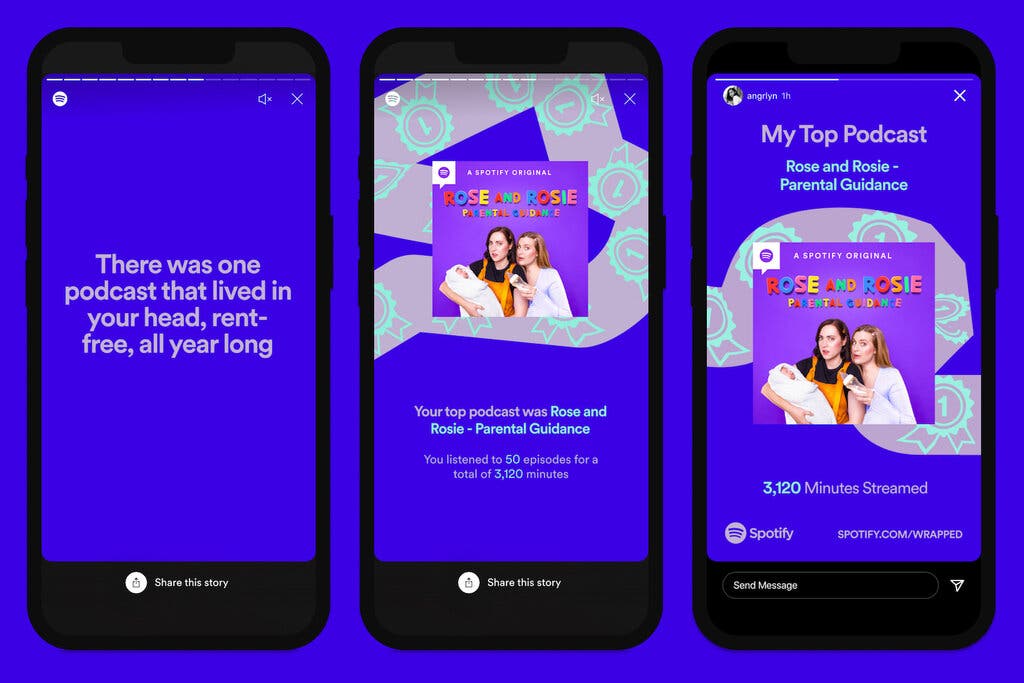
That Spotify is attempting to get more personal seems clear. While they have invaded virtually every other nook and cranny of the audio space, they simply don’t have any degree of humanity. They’re a utility – like Netflix. They’re an algorithmic pipe that aggregates and plays lots of music, but if a bigger, better deal came along tomorrow, it’s not hard to imagine herds of current Spotify subscribers moving over to a new platform.
Like in radio, no one’s loyal to a transmitter or a tower. And there’s usually no traction for most “more music morning” shows.
It’s those voices in the air studio where the magic is made. It comes down to personality, virtually each and every time. And that’s the element Spotify (and Apple and YouTube) cannot seem to overcome.
Spotify has even made its way into our dating lives. They have recently partnered with Tinder to amplify the role of music in the dating machine.
TechCrunch reports that a new feature called “Music Mode” allows users to hear a preview of a prospective date’s favorite song, the theory being that if you share music tastes, you might actually be able to get along with one another.
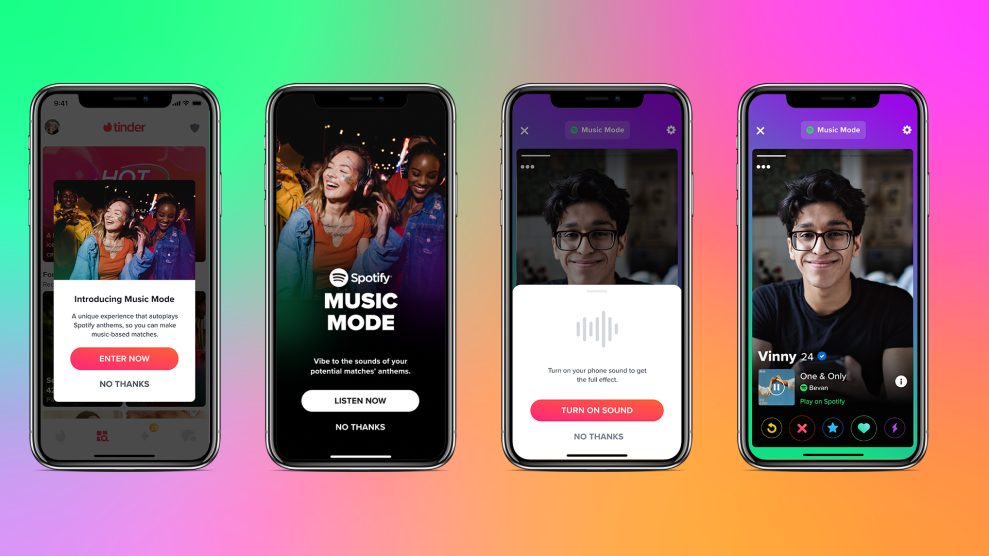
But again, these are the trimmings of personality, not the real deal. You don’t go to Spotify for that local, personal blast of humor, controversy, or other elements that pique your emotions, and keep you coming back every day for more.
Like 40 years.
That’s how long Pierre Robert has been entertaining the citizenry of Philadelphia on the WMMR airwaves. The station – and its parent company, Beasley, are in the middle of a well-deserved Pierre Fest this month, celebrating a midday guy and what he has brought to a station and a city. Pierre has never been a “that was, this is” jock. He was not built for the “PPM rules,” confounding outside ears, like consultants, for decades.
But Pierre’s results are undeniable. Not only are his ratings consistently stellar, what he brings to the WMMR brand is incalculable. Pierre is not a “four and out the door” talent. He goes the extra mile, he revels in doing those momentous artist interviews, and he shows up for pretty much everything, especially the music. This is a guy who got into radio for the right reasons, and has fun every day, celebrating the music and the artists who make it.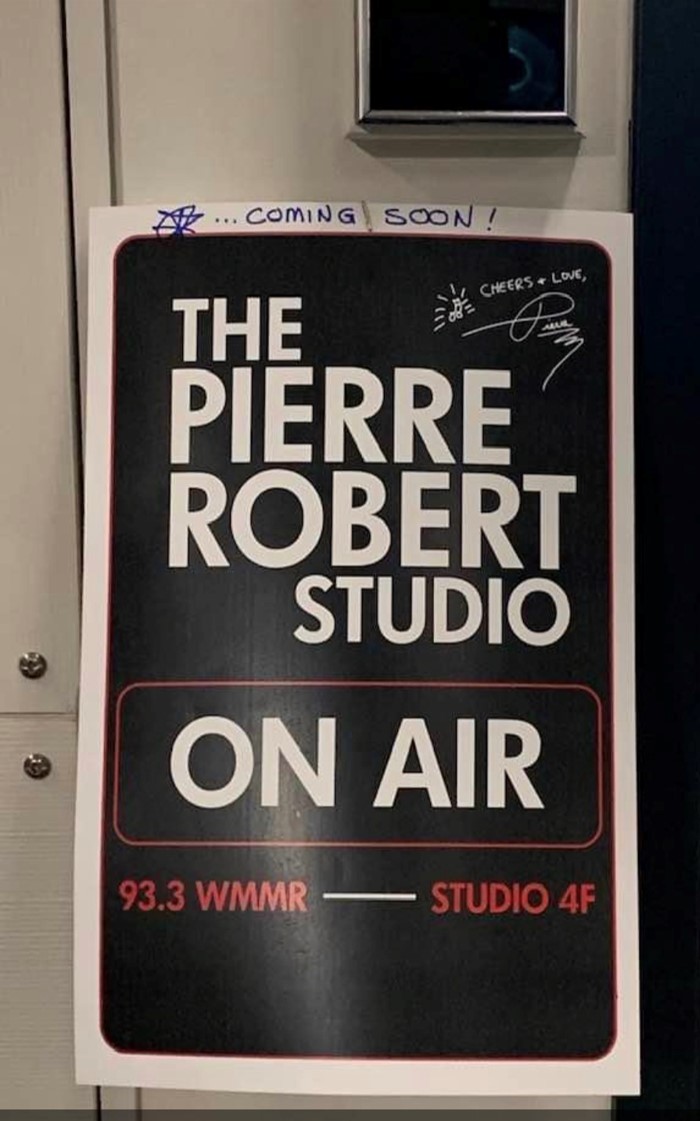
Earlier this week, market manager Joe Bell, announced the WMMR main air studio has a new look. It has now been officially renamed in Pierre’s honor, a reminder to every current and future personality who walks through the studio door the Crocs they must try to fill when they get behind the mic at WMMR.
Programmer Bill Weston and I have had no shortage of discussions over the years about Pierre, and what he brings to the station.
Yes, there is the ratings, but it’s the intangibles that make Pierre such a unique ambassador for a station that has had no shortage of fantastic personalities over the years, including the current lineup that includes recently inducted Radio Hall of Famers Preston & Steve.
Now I know the cynics among you are thinking – or shouting – “But how many Pierre Roberts are there?”
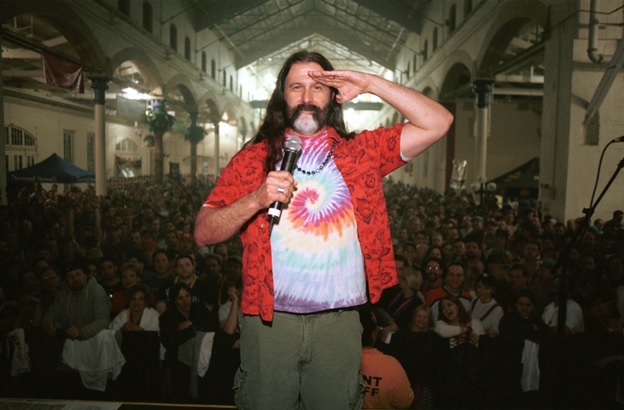 In reality, of course, only one. But there are many, many core personalities in markets all over America with personalities that matter.
In reality, of course, only one. But there are many, many core personalities in markets all over America with personalities that matter.
Should there be more? Should radio be actively looking to recruit more voices that move us? Should companies be investing in more personality training and coaching? Of course.
Talents like Pierre Robert are just what Spotify needs, but sorry, he belongs to Beasley, WMMR, and the City of Brotherly Love.
Same as it ever was.
- Why “Dance With Those Who Brung You” Should Be Radio’s Operating Philosophy In 2025 - April 29, 2025
- The Exponential Value of Nurturing Radio Superfans - April 28, 2025
- What To Do If Your Radio Station Goes Through A Midlife Crisis - April 25, 2025




Thanks Fred, it’s the battle between the qualitative vs quantitative, humanity against the machine, I got rhythm against algorithm . . . . Go Pierre!
Good to see there is a champion : )
Appreciate you, Billy.
OK, this comment is predictable and there will be more like it, but here goes. Pierre Robert is nothing short of fabulous and always has been.
But there are probably whole states where iHeart and Audacy spend less per eyar on personalities than Beasley does on Pierre Robert and those are the states where future stars used start. As for music algorithms, often now you can choose between a one size fits all version of your chosen format from radio and one prepared by an algorithm by one of the streamers. The “classic rock for all” station will have no horrible songs on it, but the algorithm will feature some that apply specifically to someone’s taste that radio wouldn’t go near.
Radio has abandoned its farm system for personalities and programmers so the last people standing like Mr. Robert serve less as representatives of radio’s commitment to personalities than as throwbacks to what radio used to be.
Yes, there are a few companies that still pay and develop personalities, but number of people whose radio’s are fed by hub and spoke music and tracked personalities from hundreds/thousands of miles away is scary large and scary growing.
There is nothing new in this post, but every time I make comments like this, their relevance is greater than the last time. Radio doesn’t show up on car play or Android auto unless you proactively put it there. Just sayin…
Funny, I wrote the post and was thinking of you. That’s why I mentioned that sadly, Pierre is an anomaly. But he doesn’t have to be.
When I talk to smart players in other industries like automotive, tech, non-profits, and I mention how radio is feeling the competitive pressures, they quickly reach a similar conclusion: radio should develop great personalities and focus on serving its local communities. They talk about it like it’s fundamentally obvious.
Except apparently, it’s not.
And I agree strongly with your last paragraph. Tick tock.
This does seem a classic case of radio’s business owners (you know who they are) killing the geese that lay the golden eggs. Tune up and down the dial, you’ll encounter lots of goose carcasses.
Nothing to add to this – you’ve said it, John.
Well. You know me. Another .02USD… Where is the advocacy? With all the other players making a bunch of noise with their splashy, albeit robotic, innovations where is the voice of radio to maintain top of mind, front-seat awareness? Is it all up to the locals? Or will the NAB, that’s the National Association of BROADCASTERS, step up and pitch in for the BROADCASTERS. We could follow in the steps of the big tech firms, you know, Amazon and Facebook and the like, and buy some TV time. I crack me up. But, hey, it’s real.
A good query, Lalo. Having consulted the NAB, I can tell you herding cats is more fun…and productive. Radio broadcasters tend not to be on the same page. it is difficult to get them to support common initiatives. But clearly, marketing radio would be novel…and welcome.
Having grown up with WMMR (and 94YSP), it’s no surprise that the continued stewardship of that station–from MetroMedia Radio(“MMR”), to Greater Media and, now, Beasley–has sustained it. The on-air talent once described by former sister station AM 610 WIP staff(and managers!) as “those hippies upstairs” outgrew it’s parent over the years. The second floor stash (and associated scent) may be gone but the organic human impact lingers.
Great observation, Jack. As one those “hippies in the trailers at WRIF, you brought back a memory or three. I remember the day that FM listening passed AM – an amazing moment to be in radio.
And it seems with the nationalization of radio, there’s fewer operators who really understand the power of the voices who give listeners the vibe of what’s happening in a market.
I think you’re right, Dan. Or they rationalize that a budget cut won’t really hurt. And that’s where the logic goes south.
At the risk of sounding like “that guy”–the old, crusty guy longing for days that will never return (really, I’m not that guy!)–this makes me thankful to have gotten into radio at a time when Humans were still in charge. I think I may have been the last one through that door but I remember–quite fondly, actually–of having a colored, programming clock, directing you to which category of song to play next (and those songs were each printed on an INDEX card!)…but from then, it was up to YOU. YOU picked the music based on, well, gut instinct–what will SOUND right together!
It may be the only thing radio CAN still offer–if it chooses to–separating it from the rest of the field: A human heart.
I programmed that way, too, David. There were some not-so-good moments to be sure, but I clearly remember as a PD being surprised (all sides of that spectrum) by a choice talent made. It clearly made it more interesting, sometimes more satisfying, and occasionally cringe-worthy. Thanks for the card box/sequence sheet memories.
Spotify has pre-empted a lot of what radio does today. They don’t have the human touch but either does the vast majority of commercial radio stations. Whether it’s tracks by some yucker on the Classic Hits station with no local content, or the hipper than thou Alt stations with their circa 1995 imaging and smug morning show (usually a syndicated show) or the Top 40 which runs about 8 sweepers to every air “talent” track. Radio pretty much sucks. I am not sure how much a consultant does besides keeping their clients happy with promotion ideas or research, but its certainly not enough. For every genuine personality even in the heyday of AOR, 3 out of 4 jocks were generic as were the features. So let’s down pretend it was some kind of nirvana. It wasn’t.The problem now is few under 40 like or even know what radio is.
Wade, not argument from me about what young people even expect from radio, whether they listen at all or out of default when in the car. I do take some exception to the “heyday of AOR” comment. I agree that some jocks were run of the mill, but many others brought a sense of connection, warmth, and companionship to teens and twentysomethings growing up in that era. I appreciate the comment and the perspective.